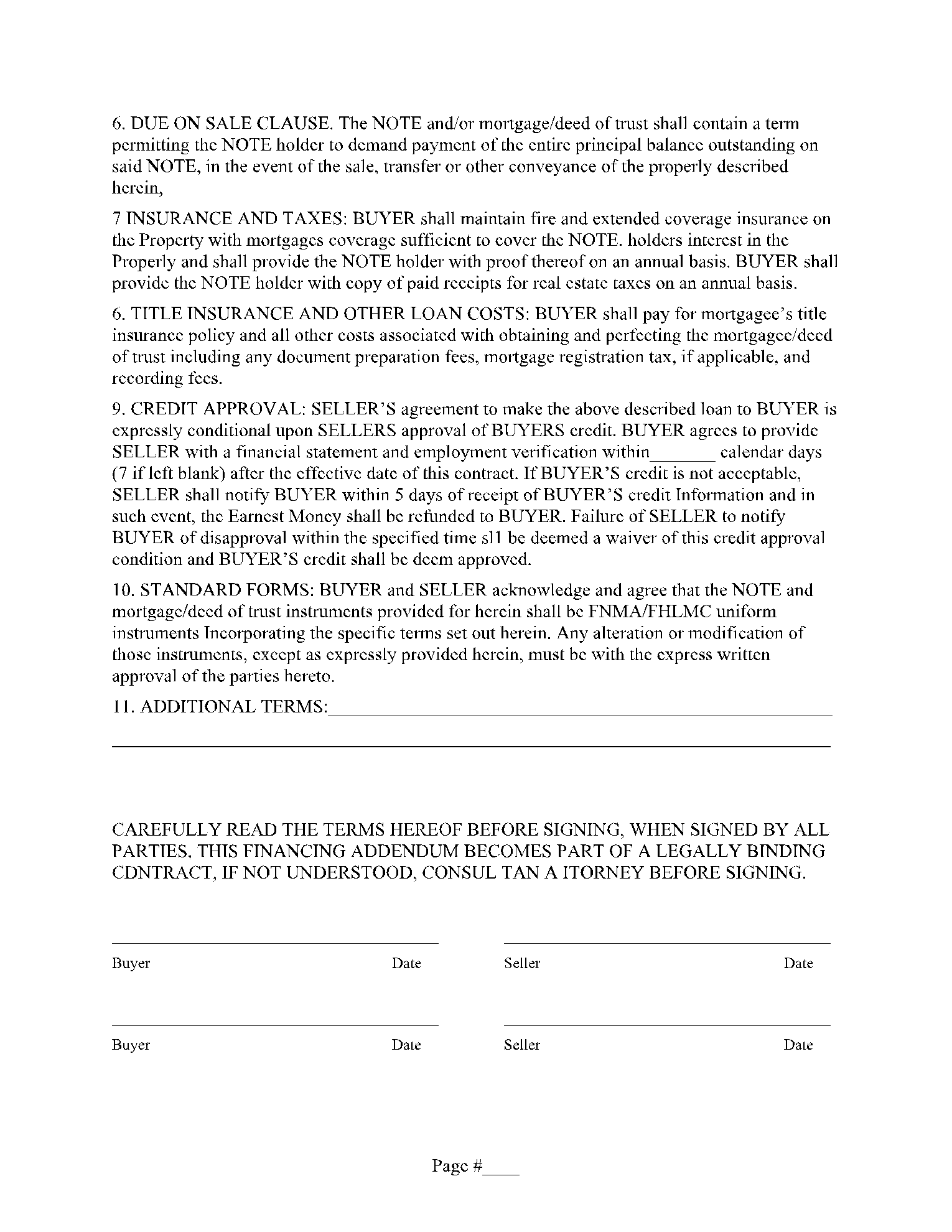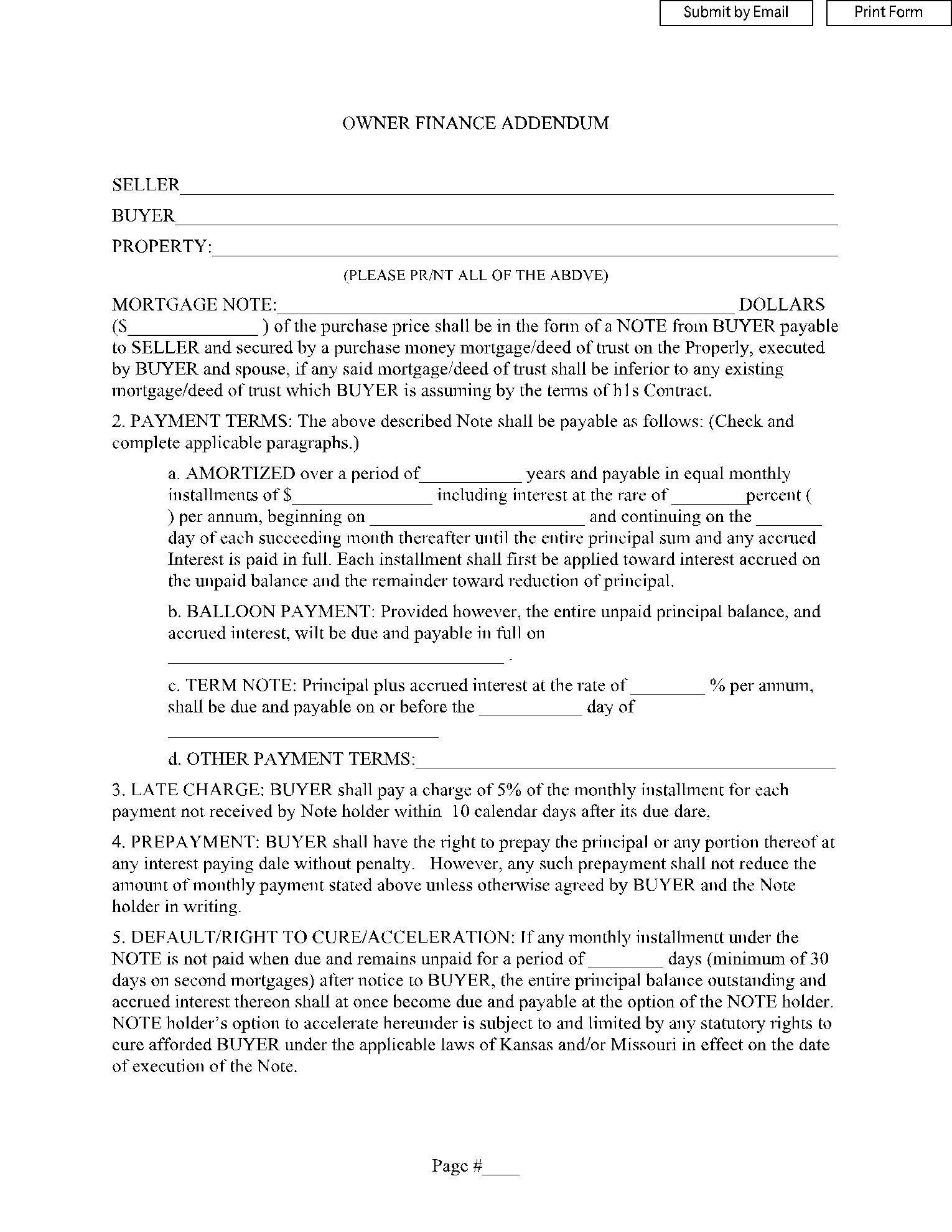If you are a property owner who has sold your property by financing the buyer, you have likely used the owner financing contract.
For starters, this is a concise and compact agreement, detailing all information with regards to the transaction of property. Luckily drafting the owner financing contract or even a real estate for sale by owner contract is no longer a difficult and tedious task, all thanks to the templates available online at CocoSign.
What Is The Owner Financing Contract?
To put it in the simplest terms, the owner finance contract is an agreement established between the owner of the property who is also the seller, and the buyer of the same property. Unlike most sale agreements, this is a situation where, a part or whole of the financing for the property for the buyer, is provided by the seller.
Thus, the contract binds the seller and the buyer in its terms, including all details for this particular arrangement. Inserting relevant information and specific details is all that the owner has to do to prepare the contract.
Why Is the Owner Financing Contract Used?
One of the primary reasons an owner financing contract is used is to ensure that the exchange of property takes place over a loan provided by the seller to the buyer. This documents the whole arrangement against doubt and ambiguity in the future.
Another factor that features in the whole scenario is detailing the exact information about this transaction, such as the amount of financing offered by the property seller to the buyer, and what is expected back from the borrower. This also includes the term of the loan and the mode of repayment.
The owner financing contract is useful when the exchange of property or real estate takes place between relatives or friends. Borrowers or buyers, sometimes, may try to get out of repayment by claiming that the transaction was a gift. An owner financing contract hereby provides proof and clarity in this regard.
What Is Covered in A Owner Financing Contract?
Ideally, you could draw out the owner financing contract in any template of your choice, but it must contain certain critical elements within to be good to go.
- Loan and terms
This is one of the primary components of an owner financing contract. This essentially details the financing amount and its exact details, as well as information about the property in question. Finally, the purpose of the financing arrangement should be also clearly mentioned.
- Tenure
It specifically details out the time frame or time limit of repaying the loan, along with the interest charges involved.
- Repayment
This term acts more like a statement that obligates the buyer to repay the whole loan amount to the lender or the seller, based on the terms of the agreement.
- Interest payment and capitalization
This section states, in detail, the interest payment and surrounding charges. Information about the interest rate and time are also included in this section. It also details about interest capitalization whereby any unpaid interest on the part of the buyer or borrower gets added to the loan amount.
- Events of default
The consequences of defaulting on the financing loan are mentioned in this element of the owner financing contract. This is important since both the buyer and the seller must agree on the terms of default.
- Set off and lien
This segment of the owner's financial contract talks about the fact that the buyer will not receive full ownership of the property until the financing loan is repaid in full, with interests. In effect, the seller will still hold partial or full ownership of the property until the loan repayment is completed.
- Amendment clause
Amendment clause puts the owner or lender at an advantage, giving them the chance to amend any term in the financing agreement without informing.
When Should You Use The Owner Financing Contract?
A free owner financing contract form should be used anytime when the property owner lends the entire or partial property price to the buyer. There might be a situation where the buyer combines this financing with a loan from the bank.
In that case, the owner and buyer should be able to agree on a particular interest rate and repayment tenure, which would be documented in this particular contract. In all situations, the owner financing contract would dictate terms in case of disagreements between the two parties involved in this agreement.
Advantages and Disadvantages of Owner Financing Contracts?
Pros
- The owner financing contract notes down all terms of the financing arrangement, including the loan amount, the repayment tenure, and the interest charges. This reduces chances of discrepancies.
- Agreeing on an owner financing contract is a more secure approach to buying property without liquid cash.
- It is advantageous for the buyer or the lender since the owners are mostly relying on the same property for security.
- An owner financing contract can also provide a tax advantage to the owner and the buyer.
- This contract proves to be useful for transactions amongst relatives and friends.
Cons
- One problem for the buyers is that they can never have full ownership of the property until full repayment.
Overall, drafting an owner financial contract might be complicated, unless you have a proper template ready. But do not let this worry you. CocoSign is here to your rescue.
Equipped with a range of contract templates, you can draft your own owner financing contract hassle-free. All you need is to insert all the relevant information and you are good to go!
Download our free owner finance contract template now.

